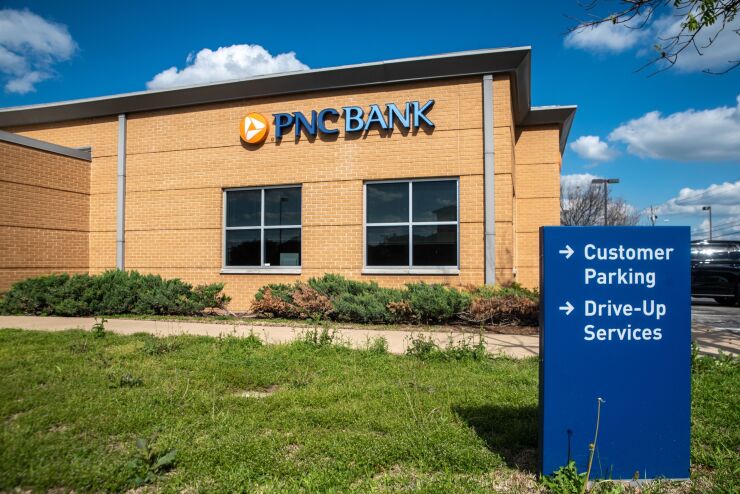Want unlimited access to top ideas and insights?

PNC Financial Services Group is the latest bank to take advantage of the regional bank failures that shook the industry this spring.
The Pittsburgh bank said Tuesday that it has purchased a portfolio, representing $16.6 billion in total commitments, from Signature Bridge Bank via the Federal Deposit Insurance Corp. The purchase could help grow the bank's fund banking business, which helps private equity firms manage liquidity and finance investments in the short term. The portfolio includes $9 billion in funded loans, PNC said.
"This could allow PNC to expand its relationship with the venture capital/private equity industry and extend new loans in what has become a dislocated market given the failures of top players in the space earlier this year," Jefferies analysts wrote in a research note on Tuesday.
The $558 billion-asset PNC has developed a reputation for its strategic and aggressive stance toward acquisitions in recent years. It joins
"We view this news positively as historical asset purchases from the FDIC have generally been very favorable to buyers," RBC Capital Markets analyst Gerard Cassidy wrote in a note.
PNC's 2020
The price of the deal for the Signature portfolio wasn't disclosed, but PNC said it was funded with cash on hand. The bank had about $6.2 billion of cash on hand at the end of the second quarter, according to regulatory filings.
Unlike some other deals for parts of failed banks, PNC's agreement with the FDIC doesn't include loss-sharing protections, the bank said. The FDIC often uses those agreements, in which the agency agrees to share losses with the acquiring institution, to encourage healthy banks to bid for parts of failed banks.
PNC said it expects the deal to be accretive to its earnings and to represent approximately $0.10 per share starting in the fourth quarter. That represents about a $0.40 increase in earnings per share on an annualized basis, RBC analysts estimated.
The bank said it would release more details about the deal when it reports its second-quarter earnings on Oct. 13.






